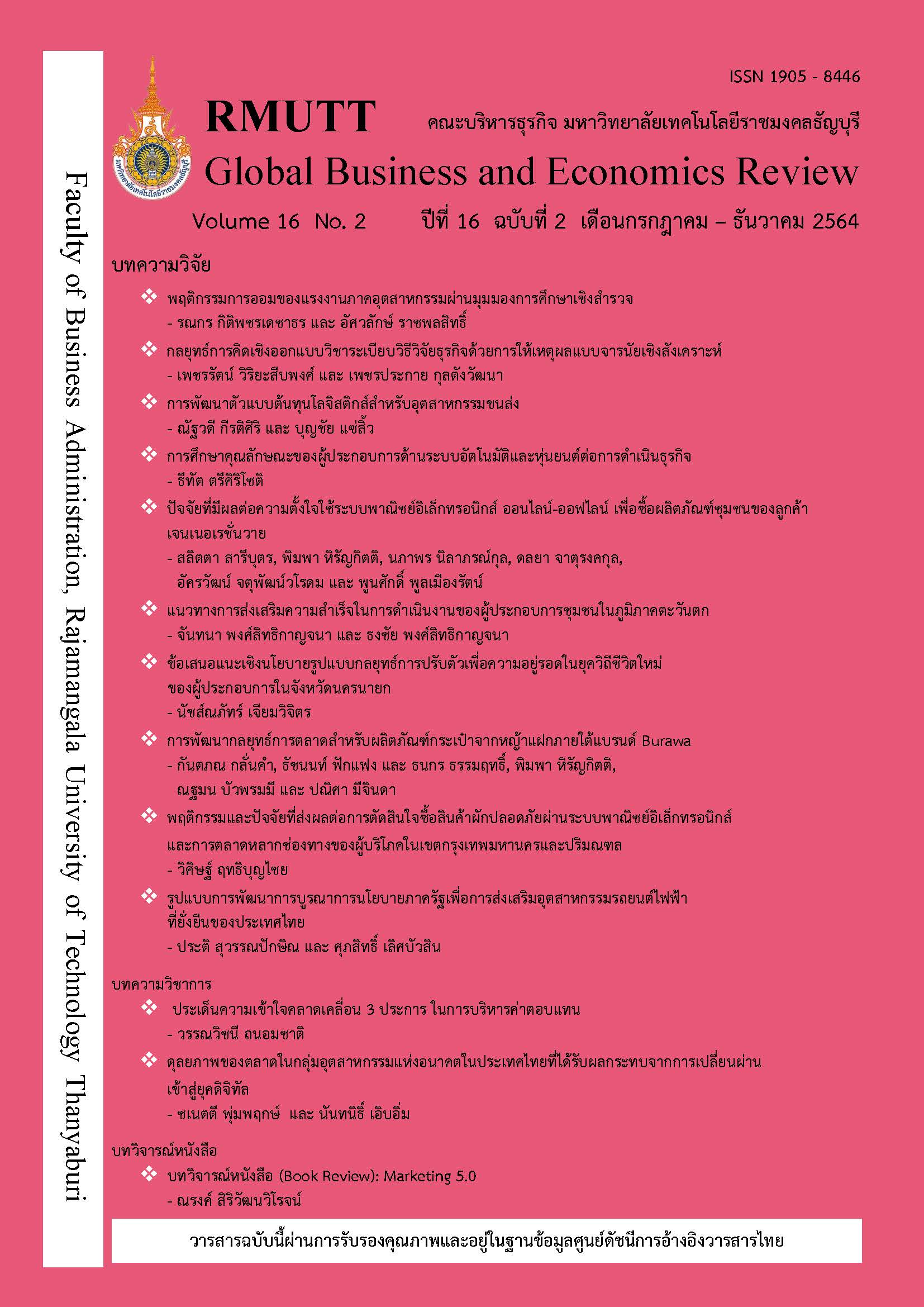ISSUES OF 3 MISUNDERSTANDINGS IN COMPENSATION MANAGEMENT
Keywords:
Compensation Management, Salary, Incentive Pay, Bonus, BenefitsAbstract
Compensation management requires both in-depth knowledge and correct understanding. People involved in compensation management need to be careful in making decisions, planning, and implementing them properly and theoretically. These are for maximum efficiency in responding to the strategies and objectives of the organization, and bring about the recognition of members of the organization in terms of fairness and motivation. However, there are some people misunderstand the right concepts and principles of the compensation management. This will obstruct the management of compensation, prevent the organization from achieving the organization's goals, and also create wrong culture and implementation for compensation management in the organization. This article aims to present 1) compensations misunderstandings and 2) straightforward concepts and principles of compensations. The results of the study found that there are three common misconceptions about compensations: 1) compensation is paid only in monetary form, 2) salary is an incentive, and 3) bonus is a type of organizational welfare. The author have detailed the concepts and principles that are valid on the issue. It can be summarized as follows: 1) compensations can be both in monetary and non-monetary forms. Monetary compensations include both directly related to work, such as salary, wages, bonuses, allowance, and not directly related to work, such as living allowance, medical expenses, and life insurance. It can be found that compensations also include benefits as well, 2) incentive compensations are what the organization gives in addition to salary. The organization must firstly pay the salary on the basis of compensation for standard work, and 3) bonus is not a compensation that is classified as a benefit category and there is no binding on the company's payment during the next performance evaluation period.
References
Berger, L. A., & Berger, D. R. (2008). Compensation Hanbook: A State-of-the-Art Guide to Compensation Strategy and Design (5th ed.). United States: McGraw-Hill.
Cichelli, D. J. (2018). Compensation the Sales Fource (3rd ed.). the United States of America: McGraw-Hill.
Gerhart, B., & Newman, J. M. (2020). Compensation (13th ed.). New York: McGraw-Hill.
Ivancevich, J. M. (2019). Human Resource Management (12th ed.). New York: McGraw-Hill.
Milkovich, M., Newman, J., & Gerhart, B. (2014). Compensation (11th ed.). New York: McGraw-Hill.
Mondy, W. R., & Mondy, J. B. (2012). Human Resource Management. United States of America: Pearson Education.
Newman, J. M., Gerhart, B., & Milkovich, G. T. (2017). Compensation (12th ed.). New York: McGraw-Hill.
Noe, A. R., Hollenbeck, R. J., Gerhart, B., & Wright, P. M. (2018). Human Resource Management (11th ed.). New York : McGraw-Hill.
Snell, S., & Bohlander, G. W. (2010). Human Resource Management (15th ed.). South-Western: Cengage Learning.
WorlatWork. (2007). The WorlatWork Handbook of Compensation, Benefits & Total Rewards. New Jersey : John Wiley & Sons.
Zeuch, M. (2016). Handbook of Human Resource Management. Murten : SpringerReference.
Downloads
Published
How to Cite
Issue
Section
License
The articles published in this journal are the intellectual property of their respective authors.
The views and opinions expressed in each article are solely those of the individual authors and do not reflect the positions of Rajamangala University of Technology Thanyaburi or any of its faculty members. All components and content of each article are the sole responsibility of the respective authors. In the event of any errors, the authors shall bear full responsibility for their own work.








